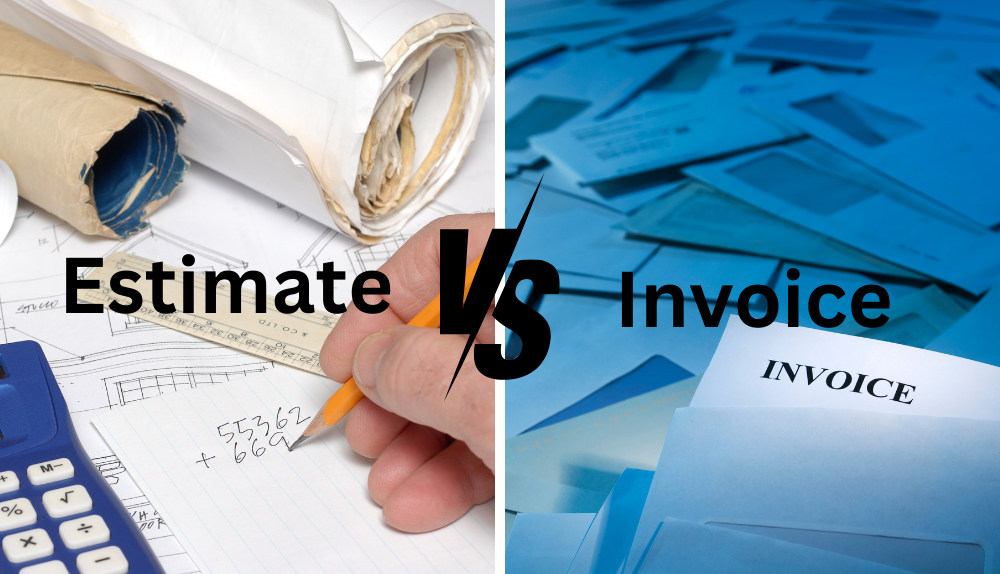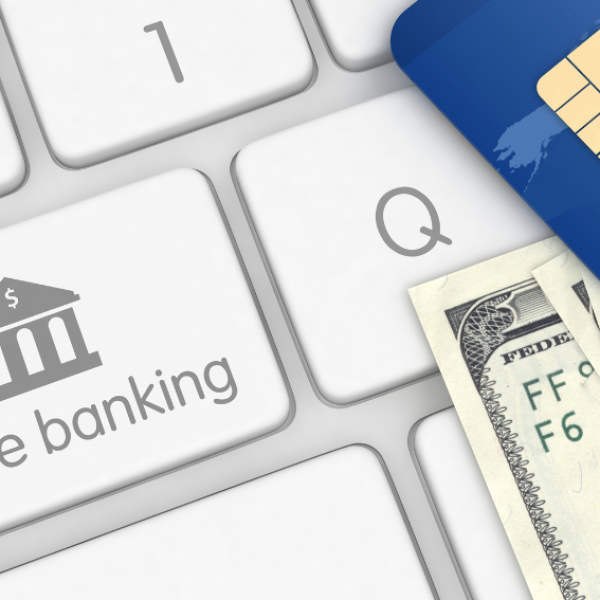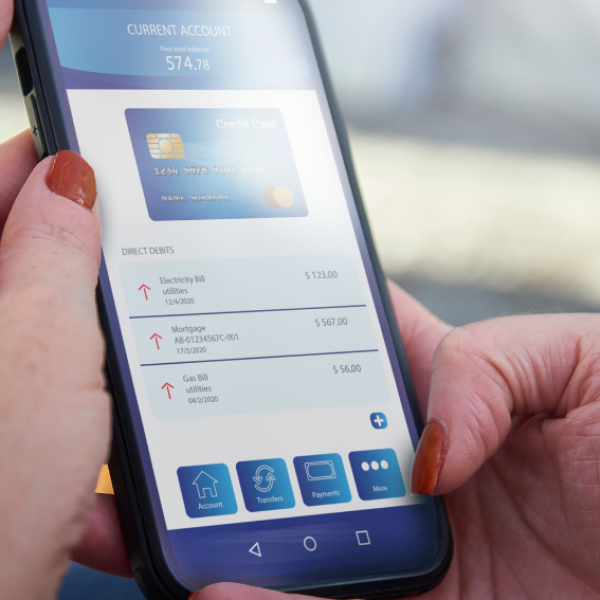Starting a new business comes with its challenges, including the need to understand various buzzwords and abbreviations related to setting up your store. It’s crucial to grasp the meanings of these terms to identify what your business truly requires.
Merchant service products and providers can broaden your market reach, enhancing the customer experience and fostering customer loyalty. However, it’s important to recognize that not all of these services merit investment.
This comprehensive guide aims to clarify the nature of these solutions and explore the various types of products available, their functions, and the providers behind them. Armed with this knowledge, you’ll be better positioned to make informed decisions regarding merchant services for your business.
In This Article
ToggleWhat are Merchant Services?

Merchant services encompass the financial tools and solutions that facilitate businesses in accepting customer payments. Whether you run an online store, a fine-dining restaurant, a mobile dog grooming service, or a brick-and-mortar retail outlet, you’ll benefit from the capabilities of professional merchant services.
These services handle various payment methods, including in-store transactions using card machines, online payments, and telephone payments, among others. Merchant service providers deliver essential payment technologies, such as card readers and payment gateways, enabling businesses to process transactions securely and efficiently. Additionally, they provide valuable features like data analysis, which helps businesses gain insights into customer behavior and make informed decisions.
How Do Merchant Services Work?
Merchant services play a crucial role whether you’re accepting payments in a cozy brick-and-mortar store or directly on your website. Here is a streamlined explanation of the process facilitated by a merchant service provider once a customer either clicks a “Pay” button or swipes their card:
- The provider captures the customer’s billing information to perform 3D Secure and implement other anti-fraud safeguards.
- This data is then transmitted to the card network for authorization.
- The issuing bank reviews the transaction and either approves or declines it based on the available funds. If approved, it sends a confirmation code back through the card network.
- The approval then reaches the acquiring bank, which makes the final decision to either approve or decline the transaction.
- Upon approval, the acquiring bank secures the funds from the buyer and deposits them into your merchant account. If you don’t have a merchant account, a payment processor will temporarily hold the funds for you.
- The merchant has the flexibility to withdraw these funds at their convenience.
Behind every transaction, numerous invisible processes ensure that payments are secure and swift, providing peace of mind for both you and your customers. A payment provider ensures these processes occur seamlessly and quickly.
Merchant Service Solutions

Merchant service solutions consist of the necessary hardware and software that enable you to accept and process payments via credit and debit cards. For instance, if you run a physical storefront, you’ll require a credit card reader. Conversely, online enterprises typically need just a payment gateway, whereas hybrid operations, often referred to as ‘brick-and-click’ businesses, would require both.
The nature of your business and your choice of merchant service providers (MSPs) will dictate the specific products you need. Here are some of the tools a merchant service provides:
- Merchant Account
A merchant account is a specialized tool designed for receiving payments from customers, predominantly through credit cards, debit cards, or other electronic means. It differs from a standard business bank account in that it temporarily holds funds before they are moved to the merchant’s primary business bank account. If you’re processing customer payments, you’ll likely need the features offered by a merchant account, though you may not need to manage one directly. Comprehensive merchant service providers like Stripe include this functionality within their broader payment processing services.
Plus, if you operate within a marketplace or platform like Etsy, Amazon, or eBay, opening a separate merchant account may not be necessary.
For those newly established businesses who intend to accept card payments directly rather than through a third-party platform or marketplace, it’s important to secure merchant account services promptly. Providers like Stripe can offer merchant account capabilities to your business without the need for a separate account.
- Payment Gateway
A payment gateway serves as a crucial technological platform, functioning as an intermediary in electronic financial transactions. It supports both in-person and online businesses by enabling them to accept, process, and manage various payment methods—including credit cards, debit cards, and digital wallets—securely and efficiently.
This technology facilitates the connection among customers, businesses, and their respective financial institutions. Payment gateways can be obtained through banks or specialized payment service providers.
- Checkout Page
A checkout page is a crucial component of an e-commerce website, comprising a series of pages that guide customers through entering payment details and finalizing their orders. This process not only collects shipping information but also processes the transaction and secures the purchase of products or services.
The checkout experience extends beyond a simple payment page; it encompasses everything from selecting products to completing payment.
- Analytics and Reporting
Merchant services providers are instrumental in offering tools for reporting and analytics, which help businesses monitor and analyze payment data effectively. Access to such data is essential for spotting trends, tracking sales performance, and making well-informed decisions to enhance business growth.
An integrated analytics and reporting platform enables businesses to organize website data meaningfully, providing deeper insights into performance and aiding in strategic decision-making.
- Virtual Terminals
Virtual terminals are web-based payment systems that enable businesses to accept credit and debit card payments without the need for a physical card terminal. They function as an online alternative to traditional point-of-sale terminals, allowing for the processing of card transactions from any location with Internet access.
With the help of a Merchant Service Provider, you can either manually input a customer’s payment details or generate a payment request link to send via email or SMS.
- Check Processing
Check processing is a payment method that enables businesses to accept checks from customers. It involves the transfer of funds from a customer’s bank account to the merchant’s account based on a written order, or mandate, provided by the customer. When a customer writes a check, they are authorizing the withdrawal of a specified amount of money from their bank account to be paid to the merchant.
- Point-of-Sale (POS)
A point-of-sale (POS) system combines hardware and software to facilitate payment processing and transaction completion for businesses. These systems can range from a simple single device to a complex setup involving multiple terminals, screens, and readers. POS systems are versatile, supporting both in-person and online transactions, with options to generate receipts either electronically or in print.
In physical stores, the main component of a POS system is often the cash register, which typically includes an internet-connected terminal, a cash drawer, and a receipt printer, with some models featuring integrated credit card terminals. For online businesses, the POS system is entirely digital.
- Credit Card Terminals
Credit card terminals, also known as point-of-sale (POS) terminals or Electronic Data Capture (EDC) terminals, are electronic devices used by merchants to accept payments via credit or debit cards. These terminals process payments by reading the card when a customer swipes, taps, or inserts it, and then transmitting the payment information to the merchant’s payment processor.
There is a wide variety of credit card terminals available, each with different features. While some features, like a mobile device with a touchscreen, may seem appealing, they can be more costly and may not be necessary if the terminal will only be used at a stationary cash register. It’s crucial for businesses to carefully consider their specific needs when choosing a terminal to ensure cost-effectiveness and functionality.
What is a High-Risk Merchant Account?
A high-risk merchant account is a type of payment processing solution designed for businesses that are considered riskier by banks. This may be due to factors such as a high volume of chargebacks, financial instability, a history of fraudulent activities, and a poor credit rating, among other risk elements discussed in this article.
Businesses categorized as high-risk often face higher fees and additional scrutiny when securing merchant services due to these risk factors.
Banks may also require a rolling reserve for high-risk accounts to cover potential chargebacks, based on the business’s history of refunds and chargebacks.
Your business might require a high-risk merchant account under several conditions:
- Your bank assesses a potential loss associated with your credit or your company’s financial situation, fearing that the costs of managing your account may outweigh the profits.
- Your business experiences, or is likely to experience, a high volume of chargebacks. While all merchants should strive to minimize chargebacks, a sudden increase in such activity can shift a low-risk merchant to a high-risk category.
- Your industry is prone to chargebacks. For instance, subscription-based services, particularly those offering free trials, frequently face chargebacks when customers fail to cancel in time and are charged for the next period.
- Your business or industry has a risky reputation that could potentially harm the bank’s reputation, such as adult entertainment, CBD products, or gambling.
- You offer “future deliverable” products or services like hotel bookings, airline tickets, event tickets, or other items based on reservations.
- Your products or services have a long chargeback liability period, such as annual memberships where chargebacks can be requested up to six months after the service period ends.
- You have a problematic history with previous merchant accounts, whether from being dropped, labeled as high risk, or having issues with processors.
- You have been listed on the Terminated Merchant File (TMF) or the Mastercard Alert to Control High-risk Merchants (MATCH) list, making any new business you start automatically considered high risk.
Understanding Different Merchant Service Providers
You might already have a sense of what merchant service providers (MSPs) are, but for a clear understanding, these are companies that supply the necessary infrastructure enabling businesses to accept payments via credit and debit cards, among other methods. Their services encompass a range of solutions, including merchant accounts, point-of-sale (POS) systems, payment gateways, credit card terminals, and various other hardware and software.
Since different MSPs offer distinct functions within the merchant services sector, it’s beneficial to familiarize yourself with the specific roles they play and the services they provide.
What is a Merchant Service Provider?
A merchant service provider (MSP) is a company that provides a suite of financial services to businesses. These services include payment processing, payment gateways, loyalty programs, and gift card programs, among others. MSPs that offer comprehensive, “full-scale” solutions often integrate these payment services with additional tools such as sales tracking systems, customer relationship management (CRM) software, timesheet applications, and accounting software to streamline business management. If your business aims to accept credit card payments, online payments, or any other form of electronic payment, you will require the services of a merchant service provider.
Choosing a merchant service provider that offers a broad spectrum of solutions can greatly simplify the payment acceptance process for your business. For instance, if you operate a physical store and also plan to conduct sales online, it’s beneficial to select a merchant service provider that supports eCommerce activities.
What is a Payment Service Provider (PSP)?
Payment service providers offer sellers the necessary tools and technology to accept and process payments. Unlike merchant account providers that offer individual accounts, PSPs provide an aggregated merchant account used collectively by numerous merchants. This setup ensures all payments are collected in one account and then appropriately distributed to each seller, including you.
Setting up with a PSP is typically quick and straightforward. You’ll need to meet certain criteria specified by the provider and share details about your business type and revenue flow. These details will determine your processing fees. Most PSPs operate on a flat per-transaction fee structure, so you pay fees proportionate to your sales.
Security is another significant advantage of using a PSP, especially for small business owners wary of obtaining PCI DSS certification—a standard requirement for e-commerce. Fortunately, all payment providers must be PCI compliant, and by partnering with them, your business also complies with these security standards at no additional cost.
However, it’s wise to inquire about a provider’s specific PCI compliance level. Ensuring that your provider meets Level 1 standards is crucial for optimal security.
What is a Payment Gateway Provider?
Payment gateway providers are companies that supply payment gateways to merchants. A payment gateway functions as an online terminal that facilitates credit card payments for businesses. It’s crucial to understand that payment gateways themselves are merely tools that enable electronic payment processing and do not process payments independently. As a result, it’s common for traditional merchant service providers to include payment gateways as part of their offerings or for payment gateway providers to also provide merchant services.
Nevertheless, these services can also be obtained separately, which offers businesses greater control and flexibility over their payment processing arrangements. If you already have a preferred payment gateway, many merchant service providers will allow you to integrate it with their systems.
Understanding Merchant Services Fees
Merchant service fees can significantly impact your business’s profitability, especially if you opt for a provider with high fees. The fees you’ll encounter depend largely on your chosen merchant service provider. Below, we delve into the common pricing structures:
Flat-Rate Pricing
This model involves a single fee for all transactions, regardless of the card brand used by the customer. However, rates may vary for different transaction types, such as those processed without the card present versus those with the card present. Usually, this ranges from 1.75% to 3%. While flat-rate pricing offers predictability in payment costs, it can be costly over time as merchants lack visibility into the markup that is included in the flat rate.
Tiered Rate Pricing
Tiered rate pricing categorizes transactions into different levels or “tiers” based on specific criteria set by the processing company. This model can lead to variable fees – lower for some transactions and higher for others. The lack of transparency in how tiers are determined can make this pricing model complex and potentially confusing for merchants.
Interchange-Plus Pricing
This model adds a fixed markup to the interchange fees, which are variable fees charged by card brands based on the card type, transaction method, and business category involved. Interchange-plus pricing provides transparency, as merchants are aware of both the interchange fees and the fixed markup, allowing them to understand exactly what they are being charged for each transaction.
| Payment Network | Average Interchange Fee |
| Mastercard | 1.15% plus an additional $0.05 to 2.5% plus an additional $0.10 |
| Visa | 1.15% plus an additional $0.05 to 2.4% plus an additional $0.10 |
| AMEX | 1.43% plus an additional $0.10 to 3.3% plus an additional $0.10 |
| Discover | 1.35% plus an additional $0.05 to 2.4% plus an additional $0.10 |
Understanding Other Merchant Service Costs
With a variety of merchant service providers available, the pricing structures can be quite diverse. Here’s a rundown of the typical costs involved:
- Monthly Statement Fees: These are fixed monthly charges for the upkeep of your merchant account.
- Early Termination Fees: These penalties apply if you cancel your contract before the end of the agreed-upon period.
- Chargeback Fees: Costs incurred when customers dispute transactions, usually ranging from $25 to $100.
- Equipment Fees: Costs for renting or purchasing POS systems, card readers, and other necessary hardware.
- Gateway Fees: These are additional charges that may apply for certain integrations or for processing online payments.
- Incidental Fees: In addition to regular service fees, you might encounter incidental fees, which cover extra services. These can include charges for paper statements, batch processing fees, or penalties for failing to meet security standards. Each of these fees corresponds to specific additional tasks or compliance requirements handled by the merchant service provider.
It’s important to carefully compare various offers and fully understand the total cost of ownership before settling on a provider. Whenever possible, negotiate fees to better fit your business’s volume and the types of transactions you handle.
Conclusion
To effectively navigate the complex world of merchant services in 2024, it’s essential to have a comprehensive understanding of the various solutions available and how they can meet your specific business needs. This includes payment gateways, checkout pages, credit card terminals, and virtual terminals, which all play a crucial role in ensuring secure and efficient transactions for businesses across diverse industries.
Additionally, selecting the right merchant service provider is critical, with factors such as pricing structures, additional fees, and the level of customer support provided all needing to be taken into account. Armed with this knowledge, entrepreneurs can make informed decisions that optimize payment processing capabilities, enhance customer experiences, and ultimately drive business growth in today’s fast-paced and ever-changing market landscape.
Frequently Asked Questions
What are merchant services?
Merchant services encompass financial tools and technologies that enable businesses to process various payment transactions, including credit/debit cards and online payments. They facilitate smooth transactions between businesses, customers, and banks.
How do I choose the right merchant services provider?
Consider factors like fee structures, security features, and supported payment methods. Compare transaction fees, setup costs, and additional charges such as PCI compliance fees. Match provider offerings with your business requirements for optimal selection.
What should I know about the costs involved with merchant services?
Merchant service fees vary based on provider and business needs, with pricing structures like flat-rate, tiered, or interchange-plus. Be mindful of additional charges like chargeback fees and equipment costs, which can impact overall expenses.
Are there different types of merchant accounts?
Yes, traditional merchant accounts suit high-volume or high-risk businesses, while Payment Service Providers (PSPs) offer streamlined services suitable for smaller or new businesses, avoiding complex setups and high initial costs.










